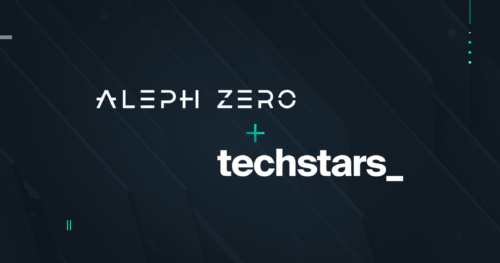Aleph Zero Foundation Joins the Crypto Climate Accord
Jun 28, 2021

The Aleph Zero Foundation is proud to announce our participation in the Crypto Climate Accord.
The financial and business world has gone through numerous upheavals in the past years; the most important change for society is the socially responsible role corporations have begun to play. The idea is to create a world where the ethical treatment of people and the environment go hand-in-hand with financial gains—with some calling it a shift from “shareholder capitalism” to “stakeholder capitalism.” One of the criticisms aimed at the blockchain and cryptocurrency sector is the energy toll required to power the technology, especially when the Proof-of-Work is concerned.
To combat wasteful energy consumption, leaders in the blockchain sector decided to address this criticism through the Crypto Climate Accord.
What is the Crypto Climate Accord?
The Crypto Climate Accord initiative was launched by the Energy Web Foundation, the Alliance for Innovative Regulation, and RMI to unite blockchain entities to decarbonize the industry. Inspired by the Paris Climate Agreement, the Signatories have declared to achieve net-zero network emissions by 2030. Over 45 parties have joined the initiative and include representatives of the cryptocurrency, energy, climate, technological, financial sectors, and NGOs. The Crypto Climate Accord has also gained the support of the United Nations Framework Convention on Climate Change (UNFCCC). This is an invaluable opportunity for the blockchain community to unite and show a way to create effective frameworks for other industries that would also wish to decarbonize. It also ties into the United Nations Sustainable Development Goals.
How to Make Blockchain Green?
Numerous solutions to solve the industry’s growing pains are already on the table. The goal is to decarbonize from the bottom up while also not destroying the framework on which blockchains built their reputation. One of the steps we can take is to switch to a Proof-of-Stake consensus mechanism—such as Aleph Zero’s. This method of achieving consensus on the blockchain is much more energy-efficient than Proof-of-Work.
Not all blockchains can easily switch to a PoS-based foundation, though. For those that stick to Proof-of-Work, there are other options. For example, companies can transfer their mining centers to areas that are rich in renewable energy. Blockchain tech can also self-monitor. We can create public ledgers that will show how green particular chains are. Certification schemes can guarantee the eco-friendliness of various blockchain initiatives while also guaranteeing the privacy of the company’s inner workings.
The Accord will support the development of open-source software systems that will bridge the gap between blockchain organizations, governing bodies, and energy suppliers.
Keep Good Company
Let’s take a quick look at other companies that adopted green solutions:
- IBM has a long history of eco-friendly practices dating back to the 1960s. They published their first sustainability report in the 1990s and have continued to introduce environmental innovations regularly. IBM has pioneered smart buildings that reduce energy costs and enforced water resource management.
- IKEA has been invested in environmentally-conscious ideas before they became fashionable. They built their policy on a bottom-up infrastructure. Every stage of their production is optimized for maximum eco-friendliness, starting with their supply chain. Close to 50 percent of the wood used in their products is bought from sustainable foresters. Also worthy of note is that IKEA purchases 100 percent of their cotton from farms that meet the Better Cotton standards. IKEA also fitted their stores with a total of 700,000 solar panels to supply power.
Let’s Decarbonize the DLTs
Aleph Zero also has its horse in the sustainability race, having partnered with ReGen Future Capital to create a system to foster the growth and adoption of the carbon credit marketplace. Not only is our platform energy efficient by design; the goal is to create a solution that will allow for transparency and traceability of carbon credits. This mirrors initiatives in other countries, such as Thailand. Blockchain solutions have been adopted in the South-East Asian country to create opportunities for peer-to-peer energy trading by crafting renewable energy certification and streamlining carbon credit trading. The line between energy producer and consumer is blurred through these systems as both parties can sell off excess energy- guaranteeing less waste.
Aleph Zero is excited to be a part of this groundbreaking leap forward for the blockchain community. Climate change is one of the most pressing issues of our time, and we are determined to bring our knowledge and expertise to the forefront in tackling this problem. Here is to a greener future!


